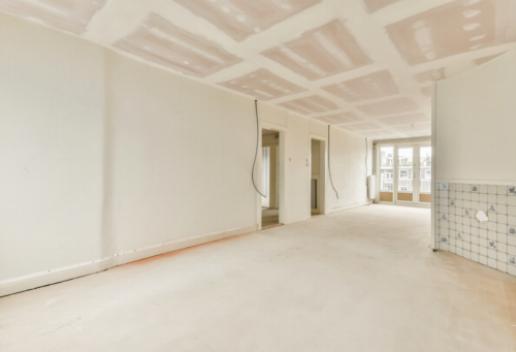Elevate Your Renovation Game: Soundproofing with Drywall
22 January 2026 by Ida D.When it comes to home renovations, one aspect that is often overlooked but essential for creating a comfortable living space is soundproofing. Whether you are looking to reduce noise from neighbors, outside traffic, or internal sources within your home, soundproofing with drywall can make a significant difference. Understanding the basics of soundproofing, choosing the right materials, and following proper installation techniques are crucial steps in enhancing the acoustics of your space. In this article, we will explore how soundproofing with drywall can elevate your renovation game and provide you with a peaceful and quiet environment.

Understanding the Basics of Soundproofing
Soundproofing is the process of reducing or eliminating sound transmission between rooms or buildings. It is an important consideration in renovation projects, as it can greatly improve the comfort and privacy of a space. There are various methods of soundproofing, but one of the most effective and commonly used techniques is using soundproofing drywall. Soundproofing drywall is a special type of drywall that is designed to absorb and dampen sound waves, preventing them from traveling through walls and ceilings. By understanding the basics of soundproofing and choosing the right soundproofing drywall, you can significantly enhance the soundproofing capabilities of your renovation project.Choosing the Right Soundproofing Drywall
Choosing the right soundproofing drywall is essential to effectively reducing noise levels in your home. When selecting soundproofing drywall, consider factors such as the density, thickness, and material composition. One popular option is gypsum board, which is a heavy and dense material that effectively blocks sound transmission. Another option is acoustic drywall, which features added layers and materials to absorb and dampen sound vibrations. It is important to research and compare different types of soundproofing drywall to determine which option best suits your specific renovation needs.Installation Tips for Maximum Soundproofing
When it comes to maximizing soundproofing with drywall, proper installation is key. Here are some tips to ensure you achieve maximum soundproofing with your walls:Use multiple layers of drywall: Adding multiple layers of soundproofing drywall can significantly reduce sound transmission. Consider using two or more layers for optimal results.
Seal gaps and seams: Any gaps or seams in the drywall can allow sound to seep through. Be sure to properly seal all edges and seams with acoustical caulk or sealant.
Use resilient channel or soundproofing clips: Installing resilient channel or soundproofing clips can help to isolate the drywall from the studs, reducing sound transmission through the walls.
Insulate the walls: Adding insulation between the studs can further enhance soundproofing capabilities. Consider using fiberglass or rockwool insulation for maximum sound absorption.
Consider adding mass loaded vinyl: Mass loaded vinyl can be installed between layers of drywall to increase soundproofing performance. This flexible material helps to block sound vibrations and reduce noise transmission.
Minimize wall penetrations: Any openings in the walls, such as electrical outlets or HVAC vents, can compromise soundproofing. Be sure to minimize wall penetrations as much as possible and use acoustical putty pads or foam gaskets around openings. By following these installation tips, you can achieve maximum soundproofing with drywall and create a quieter and more peaceful living environment.
Common Challenges and Solutions in Soundproofing
When it comes to soundproofing your walls with drywall, there are some common challenges that you may encounter along the way. However, with the right solutions, you can effectively address these issues and ensure that your space remains quiet and peaceful. One common challenge that many people face when soundproofing with drywall is ensuring that there are no gaps or seams where sound can leak through. To address this issue, make sure to properly install the drywall, using acoustical sealant to fill any gaps and reduce sound transmission. Another challenge is dealing with impact noise, such as footsteps or slamming doors. To combat this type of noise, consider adding additional layers of drywall or using soundproofing compound to increase the walls' soundproofing capabilities. Additionally, vibrations from appliances or external sources can also pose a challenge when soundproofing with drywall. To minimize these vibrations, you can use soundproofing clips or resilient channels to help absorb and dampen the sound. Finally, it's important to keep in mind that soundproofing with drywall is not a one-size-fits-all solution. Depending on the specific needs of your space and the level of soundproofing required, you may need to explore additional soundproofing methods, such as adding insulation or installing soundproofing panels. By addressing these common challenges and implementing the right solutions, you can effectively soundproof your walls with drywall and create a quiet and peaceful environment in your home.Maintaining and Enhancing Your Soundproofed Walls
Once you have successfully soundproofed your walls with drywall, it is important to maintain them to ensure they continue to effectively block out noise. Here are some tips for maintaining and enhancing your soundproofed walls:Regularly inspect the walls for any signs of damage or wear. Patch up any cracks or holes immediately to prevent sound leaks.
Consider adding an additional layer of drywall or acoustic panels for enhanced soundproofing, especially if you live in a noisy environment.
Use soundproofing caulk to seal any gaps or seams between the drywall panels and around windows, doors, and electrical outlets.
Install soundproofing curtains or carpets to further reduce noise transmission through the walls.
Keep the walls clean and free of dust and debris, as buildup can affect the effectiveness of the soundproofing materials.
Consider investing in sound-absorbing furniture or decor to complement your soundproofed walls and create a more acoustically pleasant environment. By following these maintenance tips and enhancing your soundproofed walls with additional measures, you can enjoy a quieter and more peaceful living space.